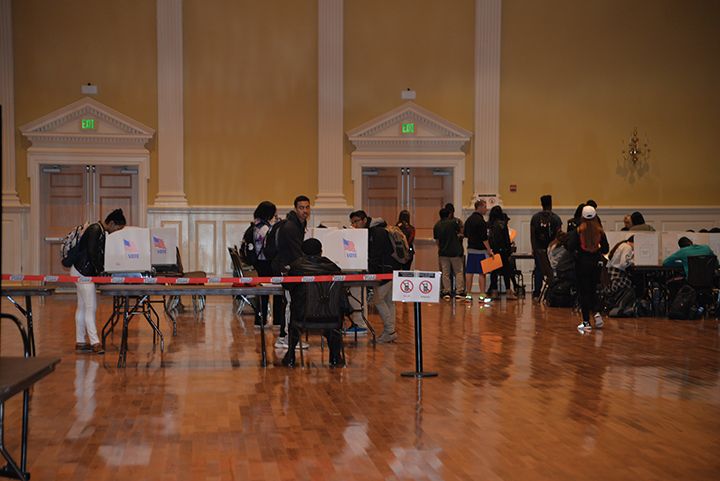Views expressed in opinion columns are the author’s own.
Election season is upon us, and with it has come a barrage of cross-media campaigns urging everyone, especially young people, to register to vote. We are told that voting is our civic duty and that it is something everyone should do, regardless of opinion or situation.
While this makes for great slogans, the moral reality is slightly more complicated. There are circumstances under which you are in fact morally obligated not to vote, and the scope of our moral duties with respect to voting extends past simply doing it.
Put simply, you shouldn’t vote if you aren’t reasonably informed as to the positions of the candidates in question. This seems self-evident, but it tends not to be included as a caveat in voter-registration drives.
What constitutes “reasonably” in this case is relative to the harm you might do if you inadvertently vote for the morally worse candidate. Vote for the wrong judge of the orphan’s court, and perhaps a few wills will be improperly executed, but the country will continue on its course largely unaffected. Vote for the wrong senator, and millions could lose health insurance.
Consider an analogy. Suppose you’re out driving one day and encounter an unconscious person strapped to a bomb on the side of the road, and you happen to have a bomb-defusal kit in your car. Despite these facts, whether you should take action depends crucially on whether you know how to defuse bombs; if you cut the wrong wire while you’re trying to defuse it, things will get messy. The vote is an important tool for change, but it’s just that — a tool. Using a tool incorrectly risks doing more harm than good.
So is that the whole story? Am I encouraging those without an interest in politics to sit at home Nov. 6 and leave the voting to the government and politics majors? Actually, no. Consider a slightly different anaolgy. Suppose you’re out driving the next day and encounter another unconscious person strapped to a bomb on the side of the road. You again have a bomb-defusal kit, but this time you also have a copy of “Five-Minute Bomb Defusal for Dummies.” This time, there’s no excuse — you are obligated to read the book and save the person’s life.
Similarly, the fact that you shouldn’t vote without proper knowledge doesn’t excuse the politically unengaged from voting, for the simple reason that it’s phenomenally easy to get informed. You can literally take a five-minute quiz online that will tell you which candidates most closely align with your values.
Political journalism is at its most vibrant as it’s been in decades (much to the dismay of the president); all the resources you need to make the informed decision of whom to vote for is at your fingertips.
To summarize the argument thus far:
-
It’s wrong to vote without being informed.
-
It’s easy to get informed and vote, and you can prevent terrible things from happening by doing so.
-
Therefore, you are obligated to get informed and vote.
This argument turns on the premise that you are morally obligated to try to prevent bad things from happening, if you can do so prudently and without great cost to yourself. Phrased abstractly like this, and indeed in context of voting, it’s not entirely persuasive. You might object that politics gives you a headache or that your candidate might lose anyway. These are, of course, terrible excuses, but we’ll take them seriously for now.
To make the moral implications of the situation clearer, I turn to Peter Singer’s famed “drowning child” thought experiment. Suppose, says Singer, you’re walking to class one morning and pass a child drowning in a pond. You can wade in and save them without risking your own life at the expense of getting your clothes dirty and missing your class. Nearly everyone would agree that you are obligated to try to save the child, clothes and class be damned.
Singer uses this example to argue that we are obligated to donate extensively to various charities, but the logic maps just as clearly onto voting. If neither small inconvenience nor the possibility of failure excuses someone from acting to save a drowning child, then it doesn’t excuse those with the capacity to get informed and vote from doing just that.
Registering to vote is great, and you should do it. Voting is also great, and you should do that, too. But neither of those are enough, and can in fact be harmful if done without first getting informed. There are still two weeks until the elections, which gives everyone plenty of time to do the necessary research to vote in a morally acceptable way. So, do it! There is much more than a single life at stake.
Joey Marcellino is a senior jazz saxophone, physics and philosophy major. He can be reached at fmarcel1@terpmail.umd.edu.



